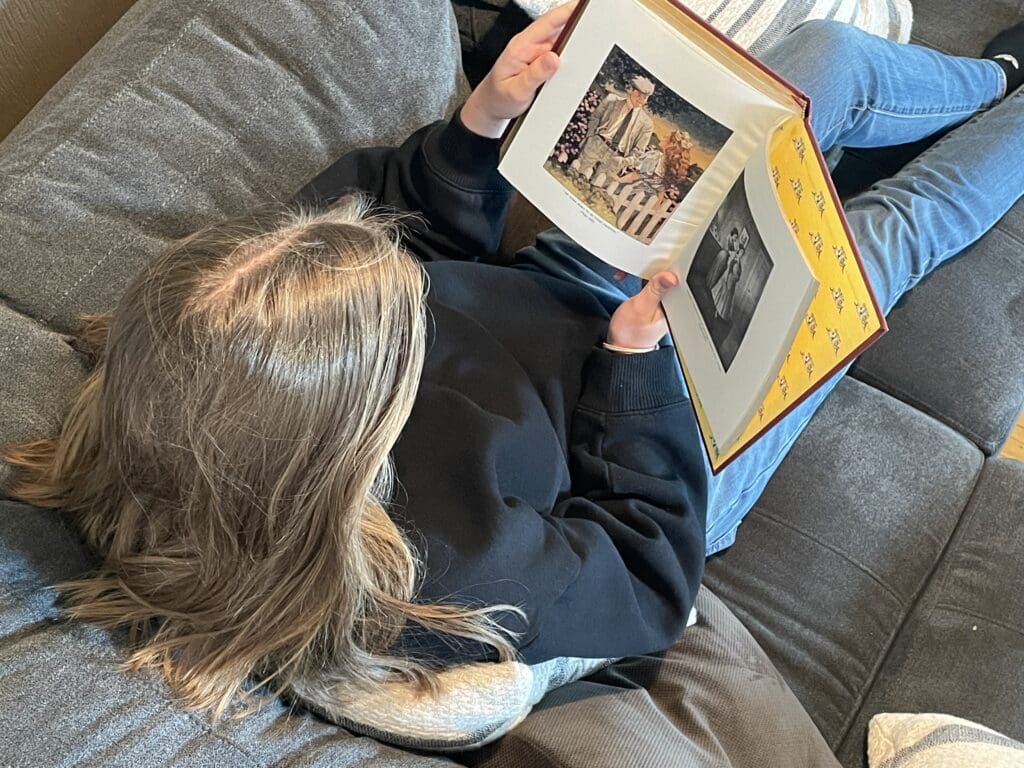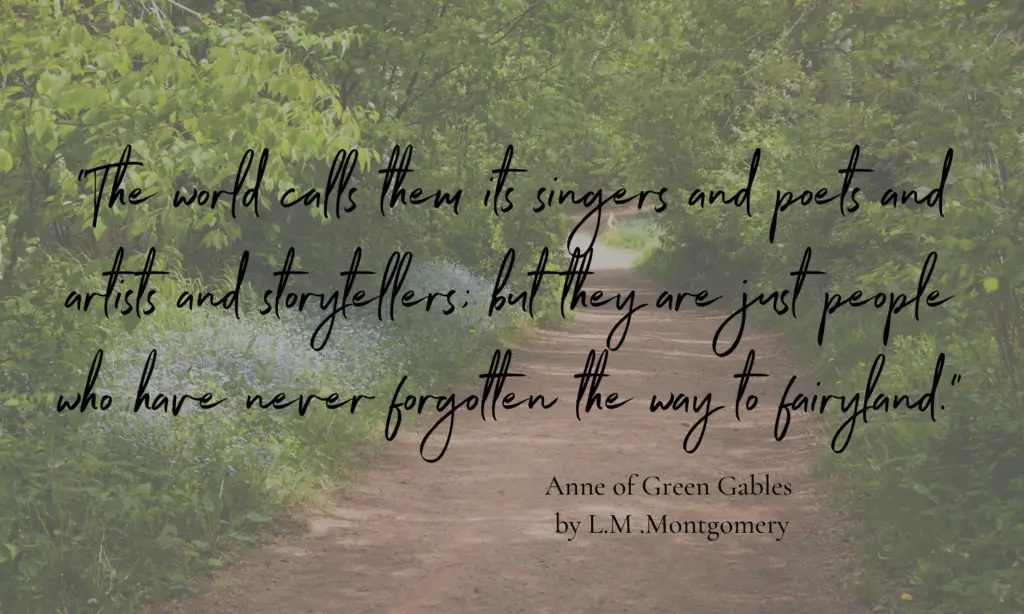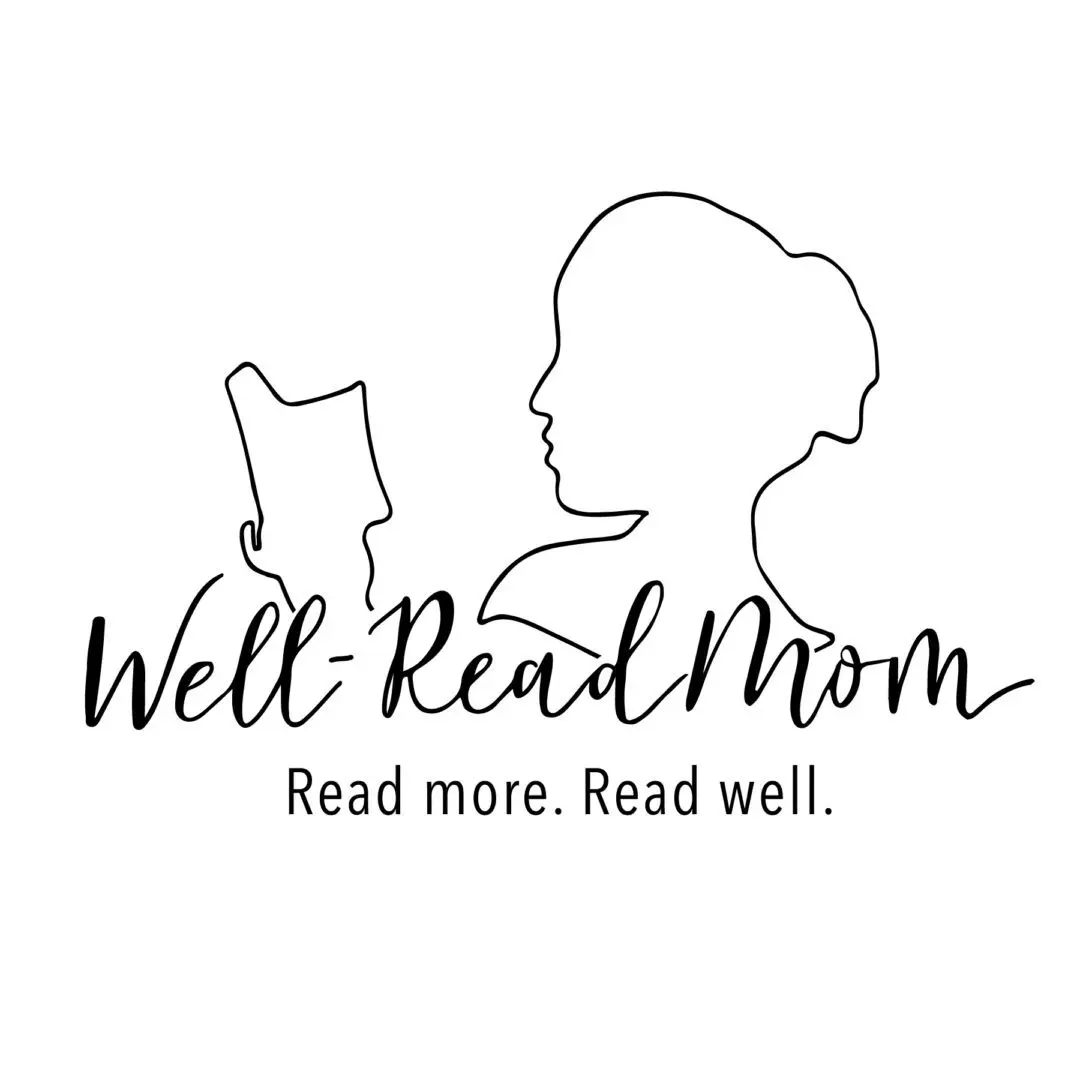Captivating Virtue: How Reading Well Transforms Hearts
by Megan Keyser
As a young girl, I delighted in reading L.M. Montgomery’s beloved classic Anne of Green Gables innumerable times. I blissfully spent hours sprawled across my bed or stretched out upon my parents’ lawn, soaking up the brilliant sunshine and every glorious word. My girlish mind relished Anne’s escapades, flights of fancy, and eccentricities but, in the recesses of my heart, what most touched me was witnessing Anne’s growth as a person. I watched her overcome her faults; channel her immense ambition into the development of her mind and the fashioning of her heart; and navigate the struggles of friendships, personal trials, and even deep griefs. Anne Shirley’s witness in all these things transformed and shaped my life. I will forever be grateful to that red-headed “freckled witch” of a girl for kindling in my heart a desire to imitate her insatiable zeal for life, her dauntless resolve in meeting challenges, and her love for all things good, true, and beautiful.

What is it that enables literature to have such an influential sway over our very souls? What causes the youngest of children to relish fairytales, repeated countless times? What prompts a person to pick up the same well-worn novel and lovingly caress its binding before diving in once again? Picturesque visions of other worlds, the artistry of an author’s words, and the intricacies of plot all have the capacity to entertain. But why do the very best of books beckon to our souls, leaving them utterly transformed?
What can truly captivate a reader is an author’s skill in intertwining human wonder and the teaching of virtue. The true master’s talent is so profound that it inspires to some greater height of virtue. While listening to a sermon or reading a spiritual treatise can undoubtedly stir our souls, there is something particularly compelling about reading literature – particularly well-written fiction – that prompts us to reform our very selves. Perhaps this is because human beings tend to learn best through example. Lectures might instruct our minds, but the witness of virtue transforms our hearts. When we see others embodying courage, faith, resilience, truthfulness, self-sacrifice, forgiveness, and charity, we are struck by their example, and we are reminded that such virtue is attainable.

A unique benefit to seeing the development of virtue in a fictional character – complete with a vivid description of all the joys and struggles, the heartaches and the triumphs inherent – is that we dive deeply and intimately into all facets of their existence. This is unlike in real life, where we only glimpse the spiritual travails of our friends, family members, and neighbors. The intimate knowledge of a fictional character allows us to appreciate their struggles and temptations and to wholly admire their victorious spiritual growth. By the final page, it creates a powerful catalyst for change within our own imaginations and hearts.
More than anything else, the transformative potential of literature is why reading – and reading well – is so desperately needed in our culture. While the selfish, fearful, and even vicious tendencies that plague our society cause us so much distress, the troubling reality is that, all too often, these vices are rooted in our own hearts. We may lament over newspaper articles and obsess over soundbytes, but how can we reshape society without restructuring our souls? It is far too easy to become entangled in our modern society’s love affair with sensationalism and strife, particularly when both conventional and social media pervade our existence. The monstrous genius of this affair is that it seduces our minds into futilely concentrating on the disheartening state of the world. Meanwhile, any serious concern over the state of our souls is eclipsed. Ironically, however, we can only maintain hope of renewing and vivifying our worlds by seeking to root out vice and cultivate virtue in our own hearts, that small realm over which we actually have power.
The reading of quality literature helps us to re-focus our attention on what we can change: namely, ourselves, our families, and our close communities. When we grapple with profound literary works, we develop our powers of concentration and contemplation. We learn to create silent places in our lives to meditate upon timeless truths and to cultivate our connection with God. We find inspiration to confront our own crosses more courageously. We are moved to greater charity, to more steadfast hope, to stronger passion and conviction.
And when we develop this interior disposition through reflection, what effect might it have in application? I think back on the books we read together for the Year of the Sister… The appreciation of forgiveness and fellowship we gain by reading Rumer Godden’s In This House of Brede can transform our friendships. Pondering the patient – even joyous – acceptance of suffering of the ten Boom sisters in The Hiding Place \prompts us to deepen our trust in Divine Providence and to a spirit of serenity within our households, even as we contend with the trials of modern motherhood. Elinor Dashwood’s self-mastery in Sense and Sensibility provides a moral template for overcoming self-centeredness, practicing long-suffering, and living for the happiness and welfare of others… and so on, through the list! The beauty of literature is that, to an attentive heart, it reveals sublime truths – and it does so in a way that, more often than not, leaves our hearts gladdened, our minds rejuvenated, our sensibilities delighted, and our souls enriched.
During this year of reading and fellowship, we have before us the opportunity to revel in the written word, reinvigorate our weary spirits, and reeducate ourselves in gloriously articulated and memorably crafted moral lessons. These lessons will only intensify as we reflect upon them and discuss them in the loving company of dear friends. Reading is a way to reshape our womanly hearts. When we do so, the reverberations of individual transfigurations are felt not only within our homes but also far, far beyond.
Well-Read Mom helped to bring Rumer Godden’s In This House of Brede back into print in 2020. Copies of the book are for sale in our Well-Read Mom store along with a free Well-Read Mom program sample to accompany your reading. Check it out here!


